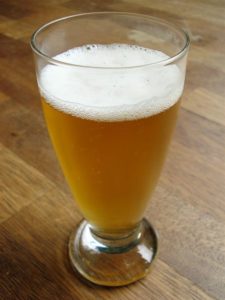 more time to go over the event in detail. And before you ask me if I’ve mixed up the date, YES, we are holding this event on a Monday. Since the restaurant is not typically open on Monday’s, space will be limited and tickets must be purchased in advance so we can be sure to prep in full.
more time to go over the event in detail. And before you ask me if I’ve mixed up the date, YES, we are holding this event on a Monday. Since the restaurant is not typically open on Monday’s, space will be limited and tickets must be purchased in advance so we can be sure to prep in full.
These “abbey ales” can vary enormously in specific character, but most are quite strong in alcohol content, ranging from 6 percent alcohol by volume (ABV) to as high as 10 percent.
Why Belgium?
The Yeast: The yeasts are famous for their aromatic and flavor contributions, lending clove and phenolics, fruity notes (apple, cherry, pear and peach), spiciness (vanilla, cinnamon and pepper), and even banana and bubblegum depending on the strain. Fermentation temperature will determine which of these are suppressed or accented.
The Sugar: Sugar is a critical component of abbey and Trappist beer. It serves to boost gravity and fermentables, but, more importantly, keeps body relatively light without compromising complexity and richness. For use with most Belgian Ales, Candi Sugar adds a slight residual sugar, a certain crispness, and a higher alcohol percentage without increasing flavor.
The Trappists: The Trappists originally brewed beer to feed the community. Nowadays, Trappist breweries also brew beer to fund their works and charitable causes. Many of the Trappist monasteries were destroyed during the French revolution & World War. In the last 300 years, there were at least 9 Trappist breweries in France, 6 in Belgium, 2 in the Netherlands, 1 in Germany, 1 in Austria, 1 in Bosnia and possibly other countries. The International Trappist Association is set to prevent non-Trappist companies from abusing the Trappist name. Trappist breweries are constantly monitored to assure the irreproachable quality of their beers.
Malting: Barley and other grain do not contain natural sugars like grapes do for wine, they contain starch. This starch must be broken down to fermentable sugars to allow the yeast to make alcohol.
The Grains are first steeped to germinate for a few days. As soon as the grains begin to sprout, they are heated to stop the process. The grain is then dried, cracked. and ready for “Mashing”. Mashing involves steeping the cracked grain in hot, but not boiling water for an hour. The Wort is now boiled for another hour with all of the hops, and additional spices. Once cooled and strained, the yeast is added.
For Ales, the fermented juice is stored at room temperature for a few weeks. For Lagers, the fermented juice is stored at cold temperatures for many weeks. After fermentation, the “green beer” is aged in the desired manner and then conditioned (naturally carbonated) or artificially carbonated.
Andrew knows his stuff! And he knows a lot more than what I just shared with you so definitely grab a ticket to this event so you can soak it all in. Now, let’s get to the drinkable menu.
The line up will be:
Rebecca McKinney
I wanted to create this blog for a few reasons. First and foremost, to share tips, tricks, and knowledge about the food and beverage industry in general but also to help people see a different side of the restaurant world. Every restaurant has a totally unique culture and world within it. I want to help open people’s eyes to more than how fast the service is or how easy or hard it is to secure a reservation.
So, thanks for stopping by! I welcome your ideas, input, and feedback and hope you enjoy!
Eat well & travel often,
Becky McKinney
Latest posts by Rebecca McKinney (see all)
- Why Food Makes the Best Gift for a New Mom - April 12, 2023
- 5 Ingredients to Cook With This Spring - March 15, 2023
- 10 Reasons to Dine Out on Valentine’s Day - February 2, 2023



Leave a Reply